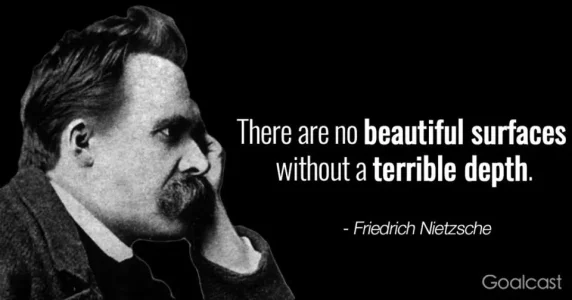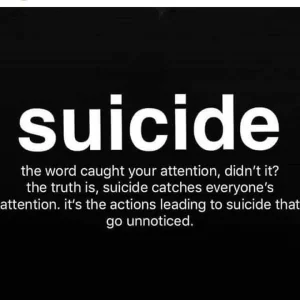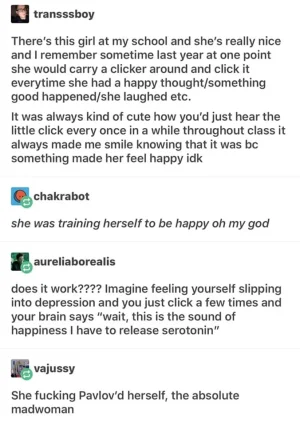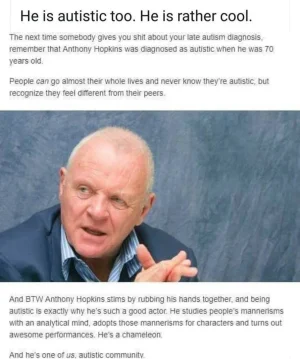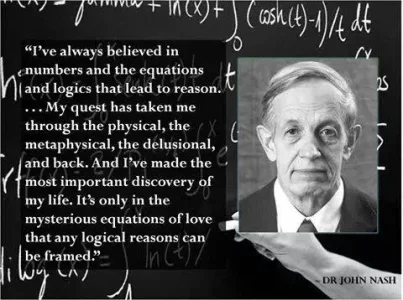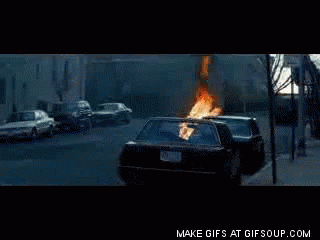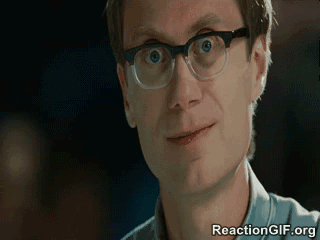Community Trauma and Development
Leslie Korn, Ph.D., M.P.H
Presented at: The World Conference on Violence and Human Coexistence,
Sponsored by University College, Dublin and the Center for World Indigenous Studies, Olympia WA., U.S.A.
What is sacrificed with the elevation of human consciousness above natural process is not only the idea of the intelligence of nature, but ones experience of being immersed in a larger whole.
The history of development is a history of trauma.
Development that is not self determined is predatory.
Development that is not self determined precipitates inter-generational trauma in individuals and communities.
When this occurs people suffer loss and grieve over ways of life, families divide and the rituals of celebration and healing lose meaning.
When development is not self determined, the earth loses as well.
Assaulted and out of balance, she grieves and falters in her ability to offer nourishment.
Because the sea cries black tears at her invasion she too cannot proffer her bounty—and then all of natures animals are out of order.
The body is to spirit like the land is to its people—the ground of life force.
However there are predators — people, governments, and corporations who exert power over others in order to take the resources of people and their lands.
And because of their intimate interconnection, taking the land destroys a people, just as taking the rituals and ways of life, destroys the land.
The invasion of development disconnects people from their land and its plentitude of resources just as rape leaves an individual disconnected from herself and others and in somatic, psychic and spiritual pain.
The Yup’ik peoples of the northern hemisphere celebrate the Kelek, the annual inviting-in Feast where prayers are offered and the animals of land and sea are asked to return and offer themselves for the coming harvest.
How opposite is the force of development, where oil corporations, uninvited, demand their harvest.
Among these Inuit peoples of the northwest, homicide suicide, domestic, violence rape and substance abuse was rare 30 years ago.
Now young men kill themselves in droves, husbands beat their wives and people are dying from the poison of alcohol.
Development that does not occur as part of a nations natural ebb and flow of creative change is traumatic.
Development is traumatic when it is imposed by one group on another.
Development that is not in the control of the communities is a form of socially-condoned violence and leads to genocide.
Salmon is the lifeblood of my Cowlitz family on the Northwest coast of North America and of my Yakama brothers and sisters further up the river.
Salmon are also the lifeblood of Ireland.
The Irish creation story tells of Tuan the sole survivor on earth of a great plague who in order to bring people back to earth had to became one with other animals, to identify with them completely.
Thus he took the form of Salmon for a hundred years while his blood became as pure as the streams and oceans in which he swam.
Only then did people return to earth after the long plague.
Colonialism has mutated into the current plague of development and continues to invade the lands of many indigenous peoples.
In Cowlitz land, it dams up the river, cuts the forest trees, and builds roads that destroy the topsoil.
Salmon are dying.
Development suggests that Salmon be “farmed”.
The new species of Salmon, artificially cultivated, stock our stores and further destroy the wild life of this ancient being.
The nuclear power plant at Hanford reservation on the land of Yakama nation just north of Cowlitz has poisoned the earth and river with radioactivity, destroyed the cells of our elders and children, poisoned the healing plants and foods, and caused tumors in the sacred salmon .
In many Indo- European languages the final part of several words meaning tongue also serve as the term for fish.
Thus is the story of creation told by the tongue again and again.
But if there are no fish, there will be no tongues, to tell the story.
Trauma alters the eco-system of the body mind and spirit, like oil pollutes water.
What happens to people when they are exposed to overwhelming events over which they have no control ?.
Experiments conducted in the 1960’s illustrate what happens to animals when exposed to stress from which they cannot escape.
Dogs were trained to jump from one compartment in a shuttle avoidance box to an adjoining compartment to avoid receiving an electric shock to their paws.
When the dogs had mastered this task, a barrier was placed to prevent some of them from escaping and avoiding the shock.
Two-thirds of those animals who couldn’t escape experienced depression, disruption of normal defecation and generalized distress.
However, when the barriers were removed and the animals were able to move in order to escape the shock, they remained passive, in spite of food being placed across the way.
Attempts to drag the animals across the grid to teach them that the cage was now safe, were only partially successful.
Some dogs mastered the new task, while most remained helpless and passive.
This led to a concept called Learned Helplessness a physical model for depression.
The inability to escape from stress or to control the outcome leads to depression and despair.
Because dogs and humans have much in common socially, psychologically and physically much has been learned through this study.
Yet as a research scientist, I must object to this type of research, that causes harm to animals as unethical and abusive.
Traumatic stress disorder is a dis-order that causes serious debility in the heart and mind of a community.
I hyphenate the word dis-order in order to illustrate that rather than a disorder as it is commonly used in medical pathology, trauma and its related dis-orders are indeed a disruption of the capacity to find order in ones world—whether that be the world of ones own nervous system or of the earth’s nervous system of rivers and streams.
Trauma becomes a disease, a dis ease, because there is no longer ease in ones world.
Trauma is characterized by exposure to overwhelming events
These include acts of nature, accidents and intentional violence such as that caused by humans.
Trauma also arises from what is conventionally referred to as technological disasters, such as the accidental release of nuclear radiation into the atmosphere or the spilling of oil into the sea.
These might be classified as corporate -mediated trauma.
These are the disasters of development that traumatize the land and its peoples.
The stress response is at first a life saving response, built -in to our biology to give all of us --hunters and fishermen, mothers and fathers, extraordinary strength and clarity when confronted by danger.
If confronted by a bear in the wild, no weapon in hand, a racing heart, pumping blood, and rush of hormones lead to quick thinking and action.
However when the stress response is called into action again and again, without the ability to affect the outcome, then despondency, despair and rage set in.
This also leads to chemical changes.
Lactic acid builds up in the muscles, leading to rigidity, pain and anxiety.
The nervous system malfunctions, the immune system is weakened along with digestion and heart function.
People alternate between depression and immobility to anxiety and irritability and self blame.
They hurt themselves and others and abuse drugs and alcohol in order to not feel the collective rage and pain.
Self-harming behavior, physical pain and self-medication, like the extensive abuse of pharmaceuticals, drugs and alcohol only reinforce a sense of being out of control.
Helpless to change the present, the individual believes there is no future.
This loss of self-efficacy and ability to mobilize change spreads throughout members of the community.
If this is not addressed at the individual and community level, trauma often leads to the reenactment of behaviors that in turn traumatize others—for example, violence.
I assert that efforts toward reducing violence, improving chronic health problems, reducing alcoholism and drug abuse will all fail until the underlying cause, traumatic stress is addressed.
The experience of whole groups being helpless not once but over and over again in the face of personal assault, state invasion and attempts to take away cultural identity is insidious and devastating.
For when whole communities are traumatized, who cares for the wounded when the caretakers, healers, shamans and elders are themselves wounded?
Development that is not self determined also causes dissociative responses.
Dissociation is the disruption of the usually integrated functions of consciousness, memory, identity, sensorimotor control and perception of the environment.
Dissociation while at times ordinary also occurs as a natural protective response to situations that are so traumatizing that the human animal withdraws its awareness
Dissociation is a human capacity, seen among people of all cultures, and occurs along a continuum.
For example at times during my talk you may find your mind wandering to another thought and topic and then suddenly bring yourself back to focus.
Or driving in a car, you go from point A to point B and remember nothing in between in spite of the fact that you drove you functioned “automatically”.
The more severe forms of dissociation include walking into the closet and not remembering that you bought that pair of shoes, or burning yourself with a cigarette because the anxiety becomes to great.
Chronic pain and alcoholism are also dissociative responses.
The ultimate act of dissociation is suicide, where the pain is so great you must leave your body behind.
In many ways dissociation is also an analogy for development.
When it is not under self control, it is destructive.
However when it is under the control of the community it is life affirming.
For example, dissociation is also a form of trance phenomena and is cultivated by Shamans and other medicine people for healing and religious experience.
Leaving ones body behind to explore the spirit realms allows greater access to the mysteries of spirit.
The traditional use of the shamanic plant or entheogen (meaning “god within”) amanitia muscaria, the mushroom used by indigenous peoples such as the Chuckchee, of Siberia and the Mazatec or Oaxaca, Mexico is another route to the divine.
This mushroom, that grows in the moist forest floor is believed to have been abundant in the forests of Ireland and inspired the mysteries of Celtic worship—This gift from the goddess is now extinct in Ireland, due to deforestation.
One can only ask how the chronic violence and abuse of alcohol in Ireland are associated with the loss of it indigenous traditions rooted in the worship of the land and its gifts.
Dissociative processes have both negative and positive impacts on psycho- physical health.
Dissociation is part of a symptom matrix associated with PTSD, including somatization, self- mutilation and substance abuse.
Dissociation becomes pathological when it is an uncontrolled response.
Shamans lead themselves and others into altered states—in effect being in control of losing control.
Throughout history gifted humans have transformed the negative effects of trauma into positive.
Shamans are chosen by their communities precisely because they stared down suffering or death and returned from the trauma stronger and able to guide and heal others.
Industrialization and development both arise from dissociation and have led to endemic social dissociation.
Dissociation throughout the industrialized regions has led to disconnection from the land.
I was struck recently when I invited the grandson of a friend of mine from the city to swim with me in the river near my home: “I don’t like to swim in rivers, I only like swimming pools!”, he cried.
Children like this grow up and serve on corporate boards and make government policy.
It is this simple early, disconnection that can lead to the unrelenting plunder of others lands.
Not surprisingly, the ancients of many cultures considered gaining control over the nervous system integral to health.
Many indigenous healing traditions arose out of the need to heal people from experiences of trauma.
The natural rhythms of the body/mind pulsate, oscillate and vibrate in concert with nature.
Nature provides the means of restoring a person’s psychobiological equilibrium often lost to trauma, however in development, it is also nature itself that is traumatized.
Normally the nervous system synchronically orchestrates the natural rhythms of the body/ mind, however in response to trauma, these rhythms are severely disrupted, affecting all aspects of function.
Indigenous peoples are challenged and tested over the millennia by a natural environment that is often stressful and traumatic.
In response peoples have developed ways of coping, healing and responding that enabled people to survive productively in spite of the difficulties life offered.
These medicines include family and community connection, physical closeness, the use of hot and cold water, laughter, massage, foods and medicines from the land and sea.
Medicines also includes the helper spirits that assist and guide in times of difficulty .
The essence of traditional medicine, across all cultures is found in the dictum that “nature cures”.
Many traditional forms of medicine and healing restore balance via the nervous system and thus help to heal.
Humans are gifted with the capacity to heal themselves and others and nature provides the methods
This is part of the order of nature.
In the traditions of native peoples the shamans serve to mediate between the seen and unseen realms.
Their nervous systems tuned acutely, transformed by trance to receive spirit medicine.
The animals who give their bodies so their brothers and sisters can be sustained are also healers helping others survive the potential traumas of natures extremes.
Traumatic stress continues to be an invisible issue throughout many communities including professional ones.
Psychologists study the effects of trauma on the mind and ignore the sociopolitical underpinnings that cause it.
Anthropologists discuss the “stress of change”, or acculturation, academic euphemisms for trauma and note the difficulties natives have in adapting to change.
Many in the field of development do not even ask the questions.
Trauma is as contagious as any infectious disease Listening to a story or witnessing another’s experience is very distressing.
It is unpleasant to think about and listen to, let alone undertake actions to address.
Traumatic stress can be addressed but it is never forgotten.
Understanding how trauma affects individuals and communities physically, mentally emotionally spiritually and environmentally can support community- determined efforts to reclaim lost traditions, strengthen existing ones and reconnect the seen with the unseen world in order to address the effects of trauma.
Restoring balance to individuals and communities, the earth, sea and sky must arise from self determination.
The antidote to loss of control engendered by development is to take control- control of land, resources, political and economic structures.
The antidote to traumatic stress, whether it be at the individual or the community level is to take control- strengthen social supports, talk with each other about the pain, enlist the elders, take action and most importantly gain control over one’s own health, the nervous system and thus behavior.
This requires distinguishing between medicines that heal and those that just kill pain Most important are the healing traditions and celebratory rituals that served our ancestors.
These rituals may still initiate young ones into the knowledge of the unseen world, where to remain in control of the rivers of one’s own nerves guides whole communities to safety.
Questions for Consideration and Discussion
Consider the term “development” What does it mean to you?
What are the value judgments placed in the word?
What does it mean to you when you hear a developed country or undeveloped or under developed?
Who has coined these terms of reference and what purpose do they serve?
Are there alternative ways to “classify” these countries.
If so what should they be What are the effects of development on your life?
Think back to your ancestors’ lives.
Where they lived, migrated to and settled.
What was the impact of development on their lives?
How has their experience been passed on to you—either consciously or unconsciously.
Consider the lands where you have traveled.
What are the various states of development that you have observed.
During your travels and sojourns observe the varying stages of “development”.
What are the positive and negative impacts of the introduction of industry, technology, migratory patterns? tourism?
Other influences?
What kind of role would you like to play?
How would you influence policies?
Consider how travel changes your view of yourself and your life at home?
What are some of the effects on your beliefs and experiences.
How will your time here alter your life, your work and your relationships?

